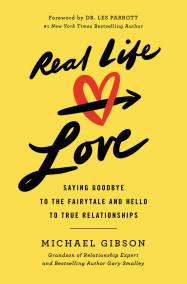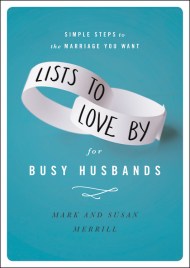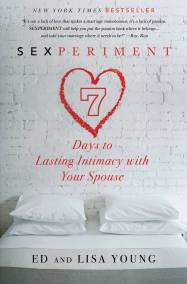By clicking “Accept,” you agree to the use of cookies and similar technologies on your device as set forth in our Cookie Policy and our Privacy Policy. Please note that certain cookies are essential for this website to function properly and do not require user consent to be deployed.
14 Keys to Lasting Love
How to Have the Marriage You've Always Wanted
Contributors
Formats and Prices
- On Sale
- Jan 8, 2019
- Page Count
- 256 pages
- Publisher
- FaithWords
- ISBN-13
- 9781546010067
Price
$19.99Price
$25.99 CADFormat
Format:
- Trade Paperback $19.99 $25.99 CAD
- ebook $9.99 $12.99 CAD
- Audiobook Download (Unabridged)
This item is a preorder. Your payment method will be charged immediately, and the product is expected to ship on or around January 8, 2019. This date is subject to change due to shipping delays beyond our control.
Buy from Other Retailers:
In this fresh, insightful marriage book, Dr. Kim talks directly to couples, showing you that marriage isn’t just meant to make you happy but to make you holy. Over the years, through his ministry, he’s conducted countless couples surveys. He knows what you struggle with and what areas of marriage scare you. He knows what you want and what you don’t want. By looking at 14 major areas of marriage, Dr. Kim shows couples how to stay on the right track. Through chapters on empathy, personal health, conflict behavior, talking, intimacy, sex, and more, you’ll learn how to have the happy, connected marriage you’ve dreamed of.
This book will change your marriage, and it will most certainly change you. If you want to know God and love more deeply in this life, 14 Keys to LAsting Love will show you how to do that.
-
"There are few voices I trust as much as Kim Kimberling when it comes to marriage, love, and relationships. For decades he's been teaching us what it means to connect with others, to practice self-giving love in our relationships, and how to do these things through the power of the Holy Spirit. What a gift he's now given us here in his newest book! The wisdom and insight he shares seems to drip off of every page. But these are not just heady, theoretical ideas. These are practical, tangible, do-able things that add value to our lives and the lives of those we love. I cannot recommend this book strongly enough."Clayton King, teaching pastor at Newspring Church, author of Stronger and Overcome
-
"Sometimes the answers you're looking for are far simpler than you think. I love this book because it's so practical, so simple and so deadly accurate. Having been married for over 25 years and in ministry for almost as long, I can see how 14 Keys to Lasting Love can make good marriages better, boring marriages interesting, and even help dead marriages live."Carey Nieuwhof, Author and Founding Pastor, Connexus Church
-
"I felt I was getting the amazing counseling, couching and insight from Dr. Kim Kimberling on every page of 14 Keys to Lasting Love. This book is so very practical and hopeful. Kim is not only a wonderful counselor and leader with Awesome Marriage but has lived out what he writes about with his own marriage and now adult children."Jim Burns, PhD, President, HomeWord, author of Creating an Intimate Marriage and Doing Life With Your Adult Children: Keep Your Mouth Shut and the Welcome Mat Out
-
"Dr. Kim Kimberling has written an outstanding book for anyone interested in having a happy, successful marriage. His '14 Essential Keys' are proven fundamental building blocks to a great marriage. Written in a down-to-earth, enjoyable style, the wisdom in this book will truly help you to become a better spouse!"Rick Johnson, bestselling author of Becoming Your Spouse's Better Half and Romancing Your Better Half
-
"Weaving in stories from his counseling practice, Dr. Kimberling provides practical insight for navigating a broad range of issues that impact marriage, including several important ones you've likely not seen covered in a marriage book before! 14 Keys is a great read for any couple, regardless of length of marriage or season, and will serve as a marriage check-up and a conversation starter with your spouse."J. Parker, Christian intimacy author and speaker
-
"As a young bride, I sat on the sofa and cried. My real marriage was not like the movies. We were both Christians and believed God brought us together. I assumed his divine endorsement would make everything easy. But it didn't, and it wasn't. It was hard and not at all what I expected. I wish we had this book in our early years. It is filled with essential tools for building a relationship you can both enjoy. Instead of a throwing out a magical checklist, it empowers couples to explore, define and determine to do the work that will make their unique marriage work. As Dr. Kimberling states, 'Nothing just works itself out in marriage.' Creating a vibrant life together takes effort, but any couple who grabs hold of these 14 keys will save time, energy and tears."Lynn Marie Cherry, author of Keep Walking, 40 Days to Hope and Freedom after Betrayal
-
"Marriage can be hard! 14 Keys to Lasting Love is a great tool for strong and weary couples alike. Dr. Kimberling addresses many problems marriages face today, and then provides the couple with practical steps to build and strengthen a marriage. I'm so thankful for this resource, and finished the book feeling encouraged, and empowered. I will be passing it along."Shauna N. Shanks, speaker and author of A Fierce Love
-
"Having known Dr. Kim Kimberling for years I can tell you that there is no better person to write this book. Everything that Dr. Kim produces is packed with practical insights into how to have an awesome marriage and this book is no different. Reading this book feels like you're in Dr. Kim's living room just soaking in the wisdom for your marriage from someone who has both lived it in his own marriage and spent his entire career bettering marriages."Nils Smith, author and chief strategist of social media and innovation at Dunham and Company
-
"If you're ready for real help toward building a loving marriage that lasts lifetime then 14 Keys to Lasting Love is for you! In Dr. Kim's easy to read manner you'll learn: steps to heal the broken areas of your marriage, skills to reframe how you view your spouse, grow in commonality amidst raising kids and stresses of life, rekindle intimacy and sex in your marriage, and how to become the couple you always hoped you'd be."Rhonda Stoppe, No Regrets Woman, speaker, and author of Real-Life Romance and The Marriage Mentor: Becoming the Couple You Long to Be
-
"If you would like to take your relationship up a notch or two, this book may be just what you've looking for. Based on a survey of married couples, Dr. Kim has identified the key areas where most couples struggle or at least want to improve. We were amazed at how practical and easy to apply the 14 Keys to Lasting Love are. You'll gleam insights from Dr. Kim and from real life stories. But it doesn't stop there! Each Key has tips for Going Deeper, to help you actually do what you have learned. Your relationship will definitely take a leap forward!"Claudia Arp & David Arp, MSW, authors of 10 Great Dates to Energize Your Marriage
-
"14 Keys to Lasting Love is your handbook to practical ways of investing in and caring for your marriage. From your emotional health, to your physical health, and everything in between, Dr. Kimberling offers you suggestions that will make you feel like the marriage you've always wanted isn't just possible - it's right around the corner."Debra Fileta, MA, L.P.C, author of Choosing Marriage and creator of TrueLoveDates.com
Newsletter Signup
By clicking ‘Sign Up,’ I acknowledge that I have read and agree to Hachette Book Group’s Privacy Policy and Terms of Use







